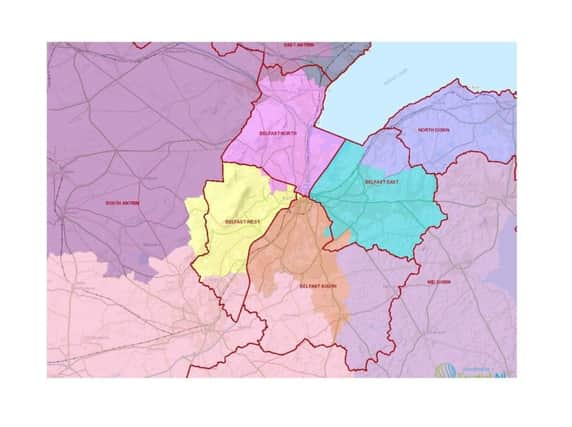Man wins bid to challenge NI electoral proposals


He was granted leave to seek a judicial review of the Boundary Commission for NI’s final recommendations.
Plans published last September will see the number of parliamentary seats cut from 18 to 17, as part of a wider move to reduce MPs at Westminster from 650 to 600.
Advertisement
Hide AdAdvertisement
Hide AdBut unlike earlier proposals which involved Belfast dropping to three constituencies, the city is to retain four seats under the final recommendations.
Lawyers for the man claim the Commission has acted unlawfully and unfairly.
Described as “a constituent affected by the changes to the electoral boundaries proposed by the Boundary Commission”, he was given anonymity.
The planned constituency shake-up provoked political controversy, with Sinn Fein criticising changes they claim would leave a number of constituencies without any nationalist representation.
Advertisement
Hide AdAdvertisement
Hide AdCentral to the legal challenge is a rule within the relevant legislation which allows the Commission to deviate from a 5% range of the UK electoral quota when considering constituency size.
David Scoffield QC, for the man taking the case, argued that the authority had shifted away from its provisional recommendations by relying on the rule without a proper legal basis.
“Why has the Commission suddenly turned about face in such a radical way,” he submitted.
Tony McGleenan QC, for the body being challenged, insisted changes to the proposals were in response to “a healthy and procedurally correct consultation process”.
Advertisement
Hide AdAdvertisement
Hide AdHowever, Mr Justice McCloskey ruled that the man behind the challenge has established an arguable case on points of alleged unlawfulness, procedural unfairness and failure to consult.
He granted leave to seek a judicial review and listed the case for full hearing in May.
Stressing that the man is not to be identified, the judge pointed out: “This kind of subject matter can arise passions in this community.”
Outside court the man’s lawyer, Eoin Murphy of O’Muirigh Solicitors, claimed the provisional proposals were “revolutionised” in the revised plans.
He said: “We contend that the Commission made an error of law and misdirected itself in the application of this rule, with the consequence that its final report is legally flawed.”